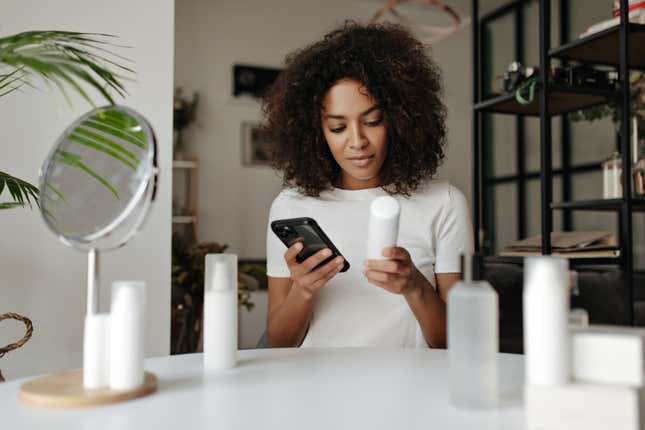
When it comes to cosmetic consumption, Black women are at the head of the pack, spending nearly $8 billion a year on beauty products and nine times more on hair products than other consumers. But although we show the industry lots of love, it hasn’t always been a two-way street. Yesterday, The Root told you about a new study linking the use of chemical hair straighteners to an increased risk for uterine cancer.
Now, just in time for Breast Cancer Awareness Month, the Campaign for Safe Cosmetics (CSC) is doing its part to make it easier for consumers to find safe beauty products. CSC’s Non-Toxic Black Beauty Project is a searchable database of over 700 clean beauty products made and sold by Black-owned companies, including cleansers, moisturizers, anti-aging products and more. Along with supporting Black-owned businesses, consumers can feel confident that the products on the list are free of the toxic ingredients known to cause cancer and other illnesses.
The list includes 80 small and medium-sized businesses that make products free of the ingredients the CSC has included on its “Do Not Use” Red List Chemicals of Concern in Cosmetics. The 241 chemicals on the list have been linked to cancer, diabetes, endometriosis and uterine fibroids and more.
An initiative of Breast Cancer Prevention Partners, the Campaign for Safe Cosmetics is the same group behind the four-part docuseries “Not So Pretty” on HBO Max. The series, narrated by KeKe Palmer, put the trillion-dollar cosmetics, beauty and personal care industry on blast by giving viewers an inside look at some of the hidden hazards associated with the products they use daily.
Janet Nudelman, Director of the Campaign for Safe Cosmetics, hopes their new database is just the start of an industry-wide effort to promote safe products. “We are thrilled to announce the launch of our searchable database of non-toxic Black beauty products,” she said. “These leading Black entrepreneurs are making safer beauty products that won’t harm the health of Black women and girls. We hope that more companies will follow their lead and grow the clean Black beauty industry by selling non-toxic beauty and personal care products that Black women can trust.”



